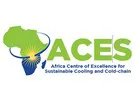Hosted by the  University of Rwanda at its Kigali campus, the Africa Centre of Excellence for Sustainable Cooling and Cold Chain (ACES) is set to scale-up its work and develop a pan-continental network of outreach centres,
University of Rwanda at its Kigali campus, the Africa Centre of Excellence for Sustainable Cooling and Cold Chain (ACES) is set to scale-up its work and develop a pan-continental network of outreach centres,
thanks to a further $3.3 million (£2.5 million) funding boost from the UK Government’s Department for Environment, Food & Rural Affairs (Defra).
Dr Jeanne d’ Arc Mujawamariya, Minister of Environment, said, “The immense benefit of this financial boost for further development of ACES cannot be stressed enough. But, more importantly, the confidence and firm footing for the Centre’s ability to deliver sustainable solutions to the challenge of inadequate cooling across Africa is immeasurable.”
This will enhance ACES’ research and development capacity through a network of Specialized Outreach and Knowledge Establishments (SPOKEs) that deploy technologies and innovative business models in rural communities.
The first SPOKE will be built in Kenya, with another to follow in Rwanda – helping to kick-start the spread of energy-efficient, sustainable refrigeration for food and vaccine supply chains.
And experts also plan to take the template of ‘hub and SPOKE’ cooling expertise being developed in Africa using a further $667,000 (£500,000) of Defra funding to help replicate the approach in India, where cold-chain emissions could double by 2027 without active intervention.
ACES is a collaboration between the Rwandan Government, the University of Birmingham and UN Environment Programme’s United for Efficiency (UNEP U4E) which unites international and localized energy, technology, finance, capacity building and policy expertise.
It offers an opportunity for commercial partners to develop and demonstrate the pathways and skills to deliver affordable, lowest carbon emissions cooling and cold-chain systems while meeting Africa’s social and economic cooling needs. It will provide research, teaching and industrial collaboration to put into action integrated sustainable cooling solutions.
Project co-designer and research lead Toby Peters, Professor of Cold Economy at the University of Birmingham, said: “We can now expand ACES’ capacity across the cold-chain and refrigeration, incorporating vaccine and health distribution alongside food logistics.
“Building on developed-world sustainable technology and localising this to developing world environments with the skills and business models needed will help ensure the transition to sustainable cooling meets the needs of African supply chains and operating environments.”
The funding will help ACES to build on its current achievements by:
- Expanding its capacity across cold-chain and refrigeration;
- Delivering scalability across Africa through SPOKEs;
- Creating international scalability by replication of the ACES model in other fast-developing markets, such as India; and
- Influencing policy and markets through further engagement with policy makers and industry.
For more information: birmingham.ac.uk
